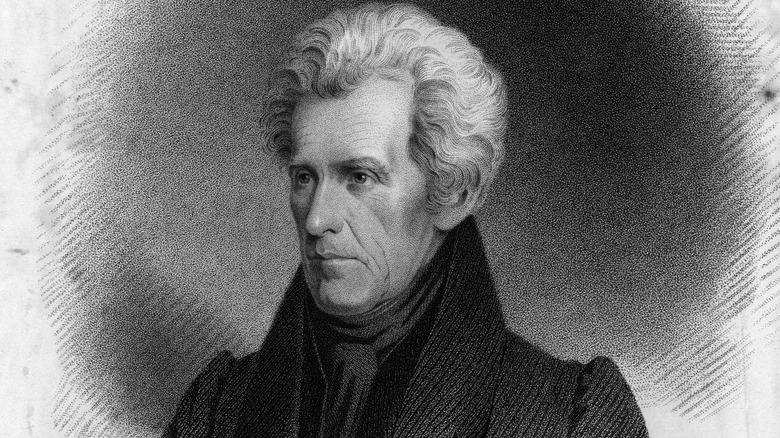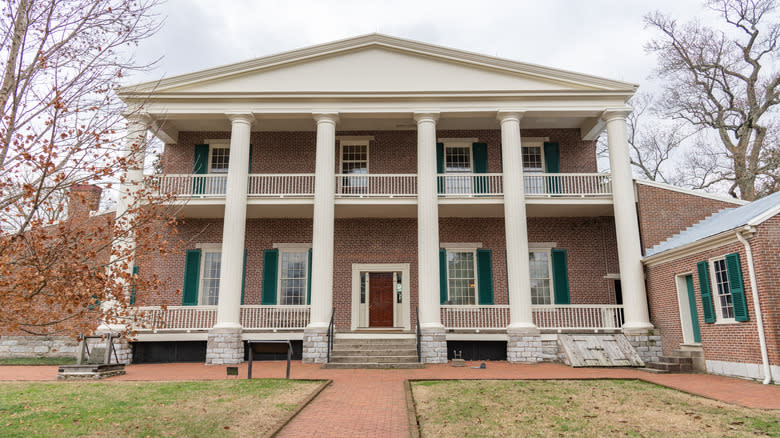How Andrew Jackson's Favorite Tipple Led To Him Running His Own Distillery

- Oops!Something went wrong.Please try again later.
Andrew Jackson is known for being a statesman first, and — depending on if you're interested in spirit-making or not — a whiskey-enjoyer second. Particularly, his favorite tipple of all has been well-known to be plain old 18th-century American bourbon. During his legendary open house at his inauguration, he served whiskey-laced punch to well over 20,000 people.
As far as we're aware, despite his fondness for the American spirit, he didn't overindulge (unlike his forebearer James Madison, who reportedly knocked back a pint every day). Still, he was passionate about whiskey enough to set up a few modest whiskey-making operations throughout his life. While records are scarce, the Tennessee Virtual Archive contains entries from tax books detailing his distilling operation on his farm in Hunter's Hill just outside Nashville, Tennessee. At one point, the Hunter's Hill distillery churned out about 300 gallons of new-makes which were stashed away for aging. Unfortunately, in 1799, those 300 gallons were lost in a tragic fire that destroyed not just the whiskey, but also the distillery itself.
Later, even after he moved to a new 1,120-acre estate in Davidson County (called "The Hermitage"), he got a couple of pot stills running there, too. Details about this new distillery were limited, but it didn't stop many local distilleries from catching on and claiming relation with the "presidential whiskey distillery" here.
Read more: The 27 Best Bourbon Brands, Ranked
Whiskey Might Just Be The Reason Why He Became President

Despite losing all of his equipment, including the stills and barrels, as well as the 300 gallons of precious whiskey, Andrew Jackson was still required to pay taxes on the whiskey he had produced (the same unpopular tax that led to the Whiskey Rebellion). True to his infamous stubbornness and short temper, Jackson immediately lodged an appeal with the U.S. House of Representatives, decrying the tax as "drawing money from the misfortunes" of U.S. citizens.
His petition was rejected by Congress and, predictably, made him furious. While purely speculative, some historians believe that this incident could have been one of the driving factors that ultimately propelled him into politics. It's a path that paid off handsomely for Jackson in the annals of history. Two decades after he sent the petition, he won the 1828 election and became the seventh president of the United States.
Today, beyond scattered records of his fondness for whiskey and his brief-but-eventful foray into the spirit-making business, if you're lucky, you can find some bottlings that pay homage to Jackson on the shelves. Old Hickory Bourbon, for instance, takes its name from his famous nickname. While the bourbon itself has no direct connection to Jackson (it's distilled wholesale in Indiana instead of in Jackson's Tennesseean home), if you're a history buff and whiskey connoisseur in one, it's not a bad dram to sip while reading into memoirs or autobiographies about the man!
Read the original article on Tasting Table

